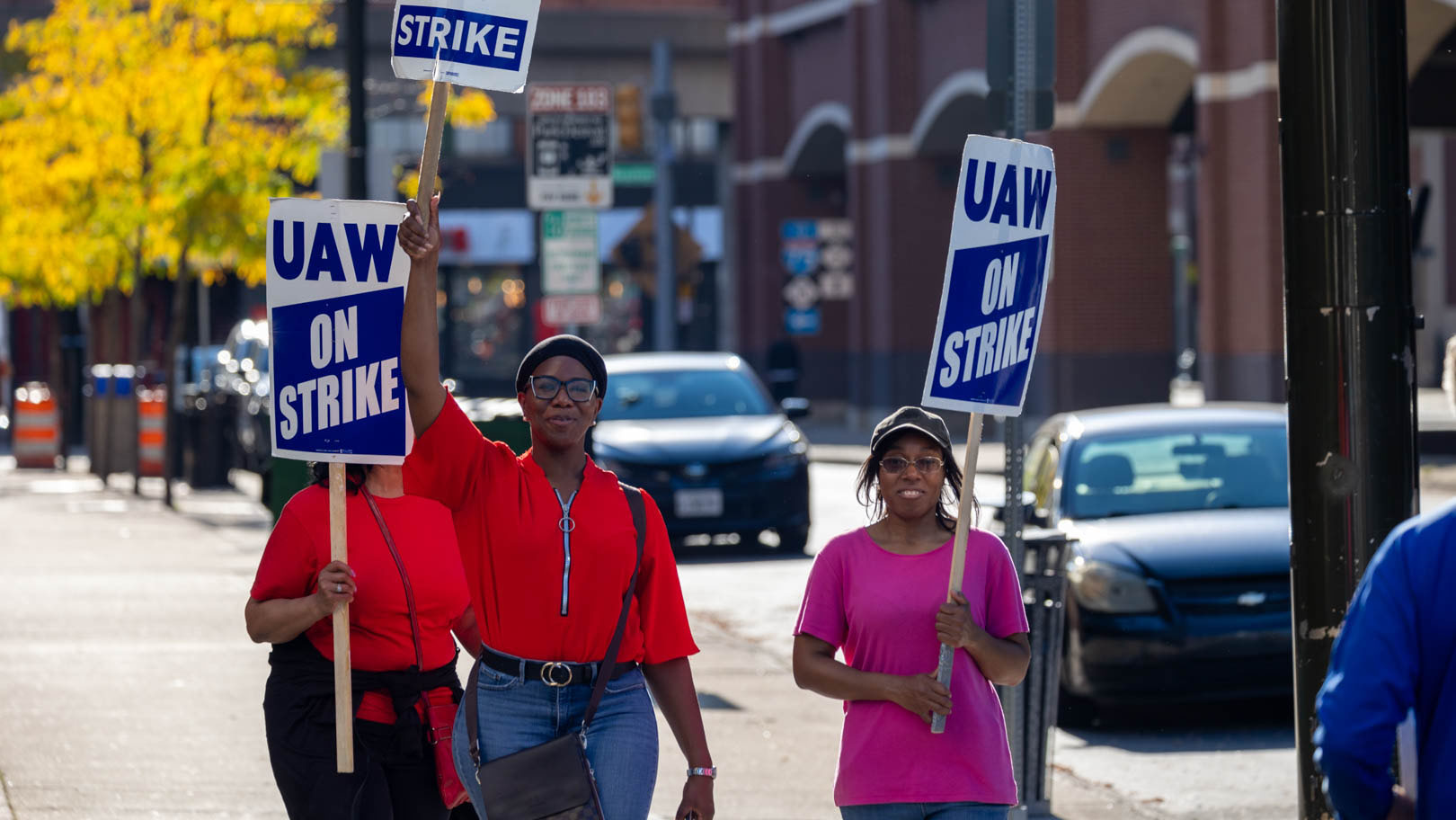UAW reaches tentative agreement with Blue Cross, potentially ending strike
Discussions over the past several weeks between BCBSM CEO Daniel Loepp and UAW President Shawn Fain have led to a tentative deal that will include “historic wins” for employees, the UAW says.

UAW workers picket Blue Cross Blue Shield of Michigan on Oct. 2, 2023 in Detroit.
After 11 weeks on strike, the United Auto Workers union announced Tuesday it has reached a tentative “verbal agreement” with Blue Cross Blue Shield of Michigan (BCBSM) and Blue Care Network.
Discussions over the past several weeks between BCBSM CEO Daniel Loepp and UAW President Shawn Fain have led to a tentative deal that will include “historic wins” for employees, according to the UAW, including the reduction of the wage progression from 22 years to five, significant general wage increases, a $6,500 ratification bonus for BCBSM workers, a $5,000 ratification bonus for Blue Care Network workers and inflation protection bonuses of $1,000 each year of the contract.
Negotiators were also able to secure stronger contractual language to protect worker jobs from being outsourced during the life of the agreement, the UAW reported.
“Our members have proven that when workers stick together, they can achieve historical gains at the bargaining table,” said UAW Secretary-Treasurer Margaret Mock, who also serves as the director of the union’s Technical, Office and Professional Department. “There were difficult times during this strike, especially with the cold weather, but our members never gave up hope and they continued to stand with one another for as long as it took to enable our bargaining team to win an equitable contract that our members deserve.”
Around 1,300 UAW members with Blue Cross Blue Shield from four local unions went on strike in mid-September demanding new contracts with higher wages and improved benefits, as well as an end to multi-tiered pay structures and the outsourcing of jobs.
With the tentative agreement, union negotiators were successful in shortening the wage progression down to just five years.
“Wage progression and job security were concerns that we knew we had to fix during this round of bargaining,” Mock said in a statement. “Twenty-two years to reach top pay is unacceptable. Because of our members’ solidarity on the picket lines and our negotiators’ hard work at the bargaining table, we were able to address many of our demands.”
Members will remain on strike while the agreement goes through the ratification process.
Trusted, accurate, up-to-date.
WDET strives to make our journalism accessible to everyone. As a public media institution, we maintain our journalistic integrity through independent support from readers like you. If you value WDET as your source of news, music and conversation, please make a gift today.
